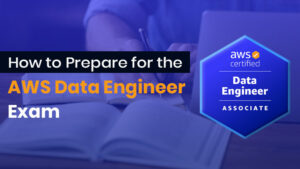
Cloud Security Posture Management (CSPM)
Cloud Security Posture Management (CSPM) Introduction In the era of digital transformation, organizations are moving to the cloud at an unprecedented pace. While the
🔥Premium Monthly Plan – Only $11.99!🔥Hurry! This exclusive deal won’t last long. 👉 Subscribe Now!

Cloud Security Posture Management (CSPM) Introduction In the era of digital transformation, organizations are moving to the cloud at an unprecedented pace. While the

How to Strengthen Security Using CIS Controls and Posture Analysis Introduction In the fast-paced and ever-evolving world of cybersecurity, defending digital infrastructure goes far

How to Prepare for the AWS Data Engineer Exam Introduction With the world becoming increasingly data-driven, organizations are depending on cloud-based systems to store, process,
Amazon Web Services is a subsidiary of Amazon.com that provides on-demand cloud computing platforms to individuals, companies, and governments, on a paid subscription basis. It is a secure cloud services platform, offering computing power, database storage, content delivery and other functionality to help businesses scale and grow.
AWS has a large portfolio to offer it to customers.
AWS has been dominating the cloud computing market for several years. According to 2017 Gartner report, AWS captures around 44% of IaaS(Infrastructure as a Service) market. Microsoft is the closest rival to AWS with only 7% of market share. Alibaba, Google, Rackspace and other players take the rest of the space.
Amazon has more than one million active customers in 190 countries. One of the largest companies like Reddit, Netflix, NASA, and Expedia run their applications on AWS.
The AWS Cloud operates 44 Availability Zones within 16 geographic Regions around the world.
The beauty of the AWS infrastructure is its flexibility to suit all kind of environments with pay as you grow model. You can start small and seamlessly scale your infrastructure. Agility is key to any business and with AWS you can deliver the most complex infrastructure requirements in no time.
AWS Certifications:
AWS certifications demonstrate your expertise to design, deploy, and operate highly available, cost-effective, and secure applications on AWS cloud infrastructure. These are one of the hottest IT certification in demand with salaries exceeding $100K per annum in the USA.
Job portals like reed and monster jobs are full of AWS vacancies. One of the biggest advantages of working with AWS products is that you can work for your customers from anywhere. Try guru.com or upwork.com to find freelance jobs.
AWS Certification Roadmap
AWS offers four role-based paths with advancing levels of expertise, plus two Specialty certifications:
Role-Based Certifications
-Foundational – Validates overall understanding of the AWS Cloud. Prerequisite to achieving Specialty certification or an optional start towards Associate certification.
-Associate – Technical role-based certifications. No prerequisite.
-Professional – Highest level technical role-based certification. Relevant Associate certification required.
Specialty Certifications
Validate advanced skills in specific technical areas. One active role-based certification required.
Where to start?
The best certification to start with is ‘Certified Solution Architect-Associate’ track which tests your technical expertise in designing and deploying scalable, highly available, and fault-tolerant systems on AWS. It gives you an excellent overview of the different services offered and the way different services integrate into the AWS echo system. AWS offers a free tier account so you can practice most of the basic stuff free.
Let’s explore what each track has to offer,
Cloud Practitioner
The Cloud Practitioner exam provides individuals with an overall understanding of the AWS Cloud to validate their knowledge with an industry-recognized credential.
· AWS Certified Cloud Practitioner
Architect
Architecting exams validate technical knowledge for solutions architects, solution design engineers, and anyone who designs applications and systems on AWS.
· AWS Certified Solutions Architect – Associate
· AWS Certified Solutions Architect – Professional
Developer
Developing exams validate technical knowledge for software developers who develop cloud applications on AWS.
· AWS Certified Developer – Associate
· AWS Certified DevOps Engineer – Professional
Operations
Operations exams validate technical knowledge for SysOps administrators, systems administrators, and those in a DevOps role who create automatable and repeatable deployments of applications, networks, and systems on the AWS platform.
· AWS Certified SysOps Administrator – Associate
· AWS Certified DevOps Engineer – Professional
It is a good idea to pursue associate level certification for architect, developer and operations tracks which gives you a good grip on the overall platform.
More information about AWS certifications can be found here,
© 2025 All rights reserved | Privacy Policy | Terms and Conditions | Sitemap | Cookie Policy




